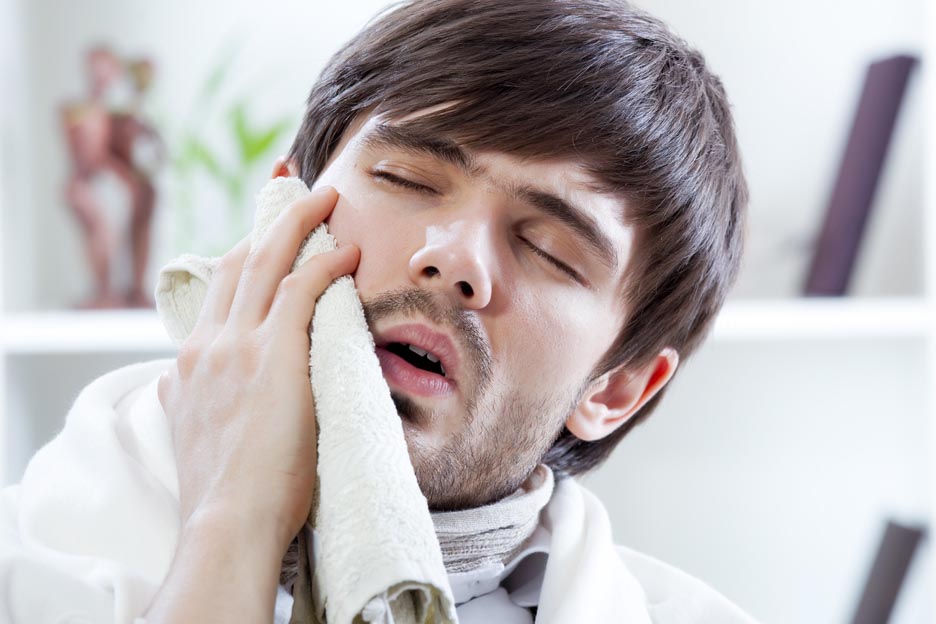Have you ever been bothered by a mouth ulcer? These painful little sores can be difficult to relieve. Preventing mouth ulcers starts with good oral and dental hygiene.

Characteristics of mouth ulcers
Mouth ulcers (or sores) are painful and affect many people. About 17% of the population has them in the course of their lives. Some people seem more susceptible than others to mouth ulcers. If that’s the case with you, here’s some information you’re sure to find useful.
Mouth ulcers are described as lesions of the mucous membrane of the mouth. The centre of the ulcer is often white and the contour, red. They may develop in various parts of the mouth, including the inside of the cheek and lips, tongue, palate, and gums. As a skin lesion, mouth ulcers can be very painful, especially when they come into contact with food or liquids. Generally, the pain lasts from two to five days, but complete recovery may take as much as three weeks. Speak with your physician if you have mouth ulcers several times a year or if the ulcers come with unusual symptoms such as redness in the eyes, joint pain, diarrhea or abdominal pain.
Causes and prevention measures
Mouth ulcers are not caused by an infection and are not contagious. Their exact cause is unknown, but several factors may trigger them:
- A mouth injury
- Poorly fitting dental prostheses or braces
- Fatigue and stress
- Food allergies
- Vitamin or mineral deficiency
- Certain medications
- Weakening of the immune system
Prevention of mouth ulcers is based on good oral and dental hygiene. Use a soft-bristled toothbrush and dental floss every day. Avoid speaking when you are eating and be sure to chew your food slowly to avoid biting your lip, cheek or gum. Some foods can aggravate the pain of mouth ulcers, including tomatoes, citrus fruits, and salty fare. Avoid them. Also, see a dentist if your dental device doesn’t fit properly.
Available treatment
Mouth ulcers disappear on their own without treatment. The prevention and relief measures mentioned above may be enough to get rid of the sores. There are, however, treatment options available in pharmacies. They come as mouth rinses, creams, gels, and ointments that you can apply directly on the sore. If you feel considerable pain, you can use analgesics. Feel free to speak with your pharmacist, who can recommend an appropriate treatment. Here are a few tips for relieving the pain caused by mouth ulcers:
- Avoid acid or spicy or salty foods and drinks (tomatoes, coffee, citrus fruits) that irritate the mucous membrane in the mouth
- Be careful with foods that can cause cuts when you chew, such as peanuts and sunflower seeds
- You can suck on an ice cube for pain relief
- Apply a paste made up of one part baking soda and one part water on the ulcer and let it dry
Even though they’re harmless enough, mouth ulcers can sometimes take away your smile. Don’t let them bother you. Maintain good oral and dental hygiene and ask your pharmacist, dentist or physician for help in finding effective ways to relieve mouth ulcers and, better yet, to prevent them!
